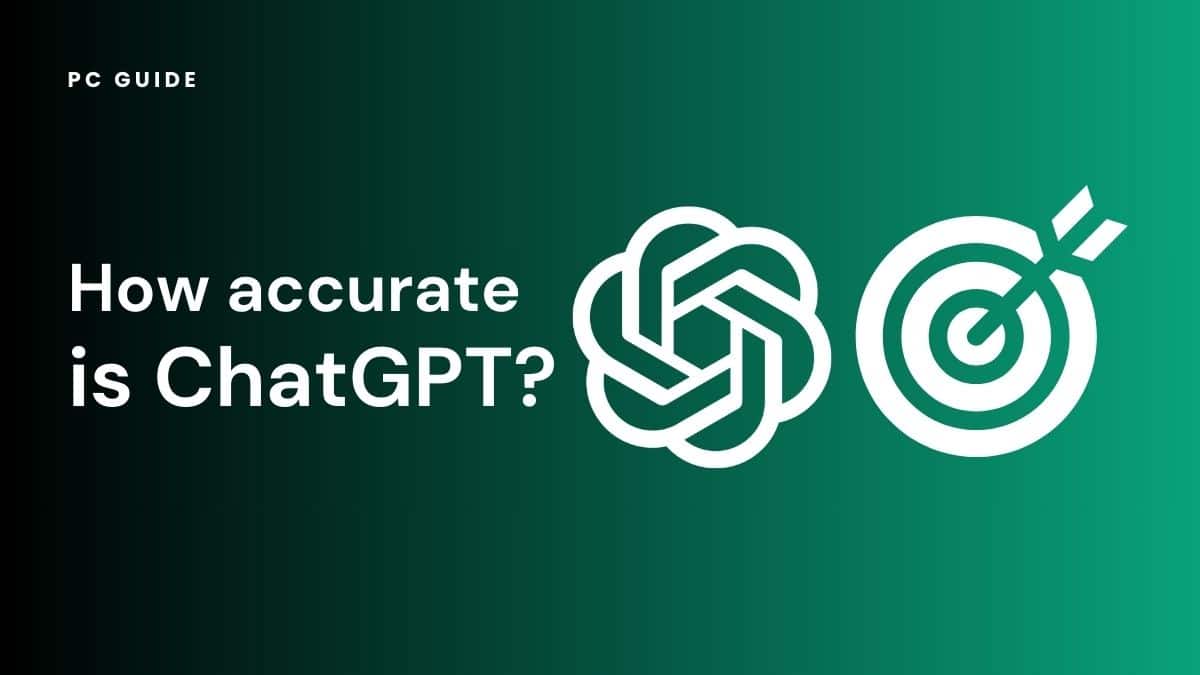How accurate is ChatGPT? – AI chatbot accuracy report

Table of Contents
Have you ever wondered how accurate Chat GPT is in generating responses? While Chat GPT is a highly advanced language model, its accuracy is not perfect. Let’s dive into the factors that affect its accuracy.
ChatGPT accuracy – How accurate is ChatGPT?
Chat GPT is an advanced language model that generates responses based on the context of a conversation. While imperfect, its accuracy depends on factors such as the quality of its training data, context, user input, language complexity, and bias.
Prime Day is finally here! Find all the biggest tech and PC deals below.
- Sapphire 11348-03-20G Pulse AMD Radeon™ RX 9070 XT Was $779 Now $739
- AMD Ryzen 7 7800X3D 8-Core, 16-Thread Desktop Processor Was $449 Now $341
- ASUS RTX™ 5060 OC Edition Graphics Card Was $379 Now $339
- LG 77-Inch Class OLED evo AI 4K C5 Series Smart TV Was $3,696 Now $2,796
- Intel® Core™ i7-14700K New Gaming Desktop Was $320.99 Now $274
- Lexar 2TB NM1090 w/HeatSink SSD PCIe Gen5x4 NVMe M.2 Was $281.97 Now $214.98
- Apple Watch Series 10 GPS + Cellular 42mm case Smartwatch Was $499.99 Now $379.99
- ASUS ROG Strix G16 (2025) 16" FHD, RTX 5060 gaming laptop Was $1,499.99 Now $1,274.99
- Apple iPad mini (A17 Pro): Apple Intelligence Was $499.99 Now $379.99
*Prices and savings subject to change. Click through to get the current prices.
OpenAI constantly works to improve its accuracy, and human evaluators review its responses to identify and correct any inaccuracies or biases.
Overall, Chat GPT has the potential to generate impressively human-like responses and revolutionize the way we interact with machines. But its accuracy is not perfect and can be affected by various factors.
Factors Influencing ChatGPT's accuracy in generating responses
Training Data
The accuracy of Chat GPT depends on the quality and quantity of its training data. If the training data is of low quality or not diverse enough, it can affect the accuracy of the generated responses. On the other hand, high-quality and diverse training data can improve the accuracy of Chat GPT.
Context
Context is an important factor in the accuracy of Chat GPT’s responses. ChatGPT accuracy may be low if the conversation context is unclear. Providing clear and concise context can help improve the accuracy of its responses.
User Input
The accuracy of Chat GPT’s responses also depends on the quality of the user input. If the user input is unclear or ambiguous, Chat GPT may generate inaccurate responses. Providing clear and specific input can help improve the accuracy of its responses.
Language Complexity
The complexity of the language used in the conversation can also affect the accuracy of Chat GPT’s responses. If the language is too intricate or uses jargon or technical terms, Chat GPT may not be able to understand the input accurately, resulting in incorrect responses.
Bias
Chat GPT, like any AI program, can be biased based on its training data. If the training data has biases, such as gender or racial biases, it can affect the accuracy of its responses. To mitigate this, developers at OpenAI are working on ways to reduce bias in Chat GPT’s training data.
Generative Nature
One of the unique features of Chat GPT is its generative nature. It generates responses on the fly based on the context of the conversation rather than relying on pre-programmed responses. While this makes it more flexible and adaptable, it also means that it can sometimes generate nonsensical or irrelevant responses.
Human Evaluation
To improve the accuracy of Chat GPT, OpenAI employs human evaluators to review and provide feedback on its generated responses. This helps to identify and correct any inaccuracies or biases in its responses.
Conclusion
While Chat GPT is imperfect, it is an incredibly advanced and impressive language model that can generate impressive human-like responses.
Its accuracy depends on a variety of factors, such as training data, context, user input, language complexity, bias, and its generative nature. OpenAI is constantly working to improve the accuracy of Chat GPT.
Its human evaluators help to identify and correct any inaccuracies or biases in its responses. Despite its limitations, Chat GPT has the potential to revolutionize the way we interact with machines and improve the user experience of conversational AI.

